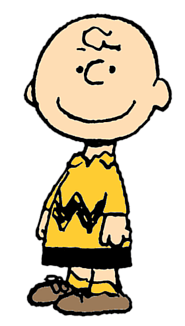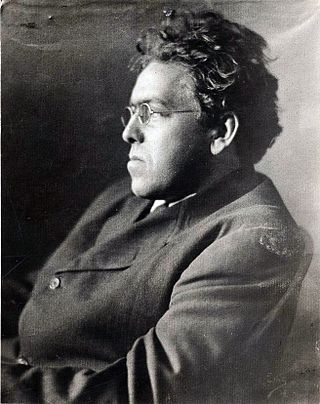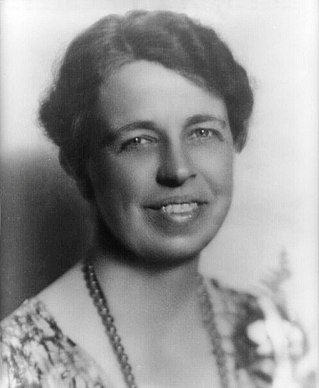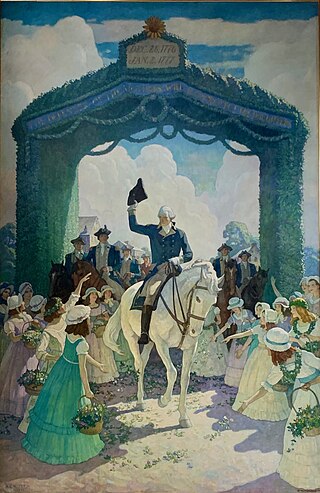Related Research Articles

Charles Monroe "Sparky" Schulz was an American cartoonist, the creator of the comic strip Peanuts which features his two best-known characters, Charlie Brown and Snoopy. He is widely regarded as one of the most influential cartoonists in history, and cited by many cartoonists as a major influence, including Jim Davis, Murray Ball, Bill Watterson, Matt Groening, and Dav Pilkey.

Peanuts is a syndicated daily and Sunday American comic strip written and illustrated by Charles M. Schulz. The strip's original run extended from 1950 to 2000, continuing in reruns afterward. Peanuts is among the most popular and influential in the history of comic strips, with 17,897 strips published in all, making it "arguably the longest story ever told by one human being". At the time of Schulz's death in 2000, Peanuts ran in over 2,600 newspapers, with a readership of roughly 355 million across 75 countries, and had been translated into 21 languages. It helped to cement the four-panel gag strip as the standard in the United States, and together with its merchandise earned Schulz more than $1 billion.

Charles "Charlie" Brown is the principal character of the comic strip Peanuts, syndicated in daily and Sunday newspapers in numerous countries all over the world. Depicted as a "lovable loser", Charlie Brown is one of the great American archetypes and a popular and widely recognized cartoon character. Charlie Brown is characterized as a person who frequently suffers, and as a result, is usually nervous and lacks self-confidence. He shows both pessimistic and optimistic attitudes: on some days, he is apprehensive to even get out of bed because he is unable to face the world, but on others, he hopes for the best and is determined to accomplish things. Charlie Brown is easily recognized by his round head and trademark zigzag patterned shirt. His catchphrase is "Good Grief!"

Anna Eleanor Roosevelt Halsted was an American writer who worked as a newspaper editor and in public relations. Halsted also wrote two children's books published in the 1930s. She was the eldest child and only daughter of the U.S. President Franklin D. Roosevelt and Eleanor Roosevelt and assisted him as his advisor during World War II.

Elliott Roosevelt was an American aviation official and wartime officer in the United States Army Air Forces, reaching the rank of brigadier general. He was a son of President Franklin D. Roosevelt and First Lady Eleanor Roosevelt.

Andrew Newell Wyeth was an American visual artist, primarily a realist painter, working predominantly in a regionalist style. He believed he was also an abstractionist, portraying subjects in a new, meaningful way. The son of N. C. Wyeth and father of Jamie Wyeth, he was one of the best-known U.S. artists of the middle 20th century. James H. Duff explores the art and lives of the three men in An American Vision: Three Generations of Wyeth Art. Raised with an appreciation of nature, Wyeth took walks that fired his imagination. Henry David Thoreau, Robert Frost, and King Vidor's The Big Parade (1925) inspired him intellectually and artistically. Wyeth featured in a documentary The Metaphor in which he discussed Vidor's influence on the creation of his works of art, like Winter 1946 and Portrait of Ralph Kline. Wyeth was also inspired by Winslow Homer and Renaissance artists.

Newell Convers Wyeth, known as N. C. Wyeth, was an American painter and illustrator. He was a student of Howard Pyle and became one of America's most well-known illustrators. Wyeth created more than 3,000 paintings and illustrated 112 books — 25 of them for Scribner's, the Scribner Classics, which is the body of work for which he is best known. The first of these, Treasure Island, was one of his masterpieces and the proceeds paid for his studio. Wyeth was a realist painter at a time when the camera and photography began to compete with his craft. Sometimes seen as melodramatic, his illustrations were designed to be understood quickly. Wyeth, who was both a painter and an illustrator, understood the difference, and said in 1908, "Painting and illustration cannot be mixed—one cannot merge from one into the other."

Peppermint Patty is a fictional character featured in Charles M. Schulz's comic strip Peanuts. Her full name, very rarely used in the strip, is Patricia Reichardt. She is one of a small group in the strip who live across town from Charlie Brown and his school friends. She has freckles and "mousy-blah" hair, and generally displays the characteristics of a tomboy, while also being shown to not be a strict complier. She made her first appearance on August 22, 1966. The following year she made her animated debut in the TV special You're in Love, Charlie Brown and began coaching a baseball team that played against Charlie Brown, and thereafter had other adventures with him. Uniquely, she refers to Charlie Brown and Lucy as "Chuck" and "Lucille", respectively. In most of her appearances, she is attracted to Charlie Brown, based on her reactions. Her birthday is October 4.

Marcie is a fictional character featured in the long-running syndicated daily and Sunday comic strip Peanuts by Charles M. Schulz.

Lucille "Lucy" Van Pelt is a fictional character in the syndicated comic strip Peanuts, written and drawn by Charles Schulz. She is the older sister of Linus and Rerun. Lucy is characterized as a "fussbudget", crabby, bossy and opinionated girl who bullies most other characters in the strip, particularly Linus and Charlie Brown.

Franklin is a fictional character in the comic strip Peanuts, created by Charles M. Schulz. Introduced on July 31, 1968, Franklin was the first black character in the strip. He goes to school with Peppermint Patty and Marcie.

A peanut gallery was, in the days of vaudeville, a nickname for the cheapest and ostensibly rowdiest seats in the theater, the occupants of which were often known to heckle the performers. The least expensive snack served at the theatre would often be peanuts, which the patrons would sometimes throw at the performers on stage to convey their disapproval. Phrases such as "no comments from the peanut gallery" or "quiet in the peanut gallery" are extensions of the name. According to Stuart Berg Flexner, the term owes its origin to the United States' segregated South as a synonym with the back seats or upper balcony where the black members of the audience sat. The racial element of the term's origin is disputed, however, and absent from the Oxford English Dictionary and others.
John Aristotle Phillips is a U.S. entrepreneur specializing in political campaigns, who became famous for attempting to design a nuclear weapon while a student, leading to him being dubbed The A-Bomb Kid by the media.

Nathaniel C. Wyeth was an American mechanical engineer and inventor. He is best known for creating a variant of polyethylene terephthalate that could withstand the pressure of carbonated liquids. Made of recyclable PET plastic, lighter than glass and virtually unbreakable, Wyeth's invention is used widely today for both carbonated and non-carbonated drinks.

Anna Eleanor Roosevelt was an American political figure, diplomat, and activist. She was the first lady of the United States from 1933 to 1945, during her husband Franklin D. Roosevelt's four terms as president, making her the longest-serving first lady of the United States. Through her travels, public engagement, and advocacy, she largely redefined the role of first lady. Roosevelt then served as a United States Delegate to the United Nations General Assembly from 1945 to 1952, and took a leading role in designing the text and gaining international support for the Universal Declaration of Human Rights. In 1948, she was given a standing ovation by the assembly upon their adoption of the declaration. President Harry S. Truman later called her the "First Lady of the World" in tribute to her human rights achievements.

Joseph Paul Lash was an American radical political activist, journalist, and writer. A close friend of Eleanor Roosevelt, Lash won both the Pulitzer Prize for Biography and the National Book Award in Biography for Eleanor and Franklin (1971), the first of two volumes he wrote about the former First Lady.

Clark Gesner was an American composer, songwriter, author, and actor. He is best known for composing the musical You're a Good Man, Charlie Brown, based on the Charles M. Schulz comic strip Peanuts.
Carolyn Wyeth, daughter of N.C. Wyeth and sister of Andrew Wyeth, was a well-known artist in her own right. Her hometown was Chadds Ford, Pennsylvania. She worked and taught out of N. C. Wyeth House and Studio. Her nephew, Jamie Wyeth was one of her students.

Reception to Washington on April 21, 1789, at Trenton on his way to New York to Assume the Duties of the Presidency of the United States is a large-scale oil painting completed in 1930 by American artist N. C. Wyeth of president-elect George Washington at his reception in Trenton, New Jersey during his journey to the 1789 inauguration in New York City. The mural was commissioned by the First Mechanics National Bank of Trenton, now part of Wells Fargo. It has been on display in the lobby of Thomas Edison State University since 2013. Wells Fargo donated the painting to the university in 2019, the most expensive gift ever given to the university.

Is This Tomorrow: America Under Communism! was an anti-Communist, Red Scare propaganda comic book published by the Catholic Catechetical Guild Educational Society of St. Paul, Minnesota, in 1947.
References
- 1 2 Peacock, Scot, ed. (2000). "Michaelis, David (Tead) 1957-". Contemporary Authors. New Revision. Vol. 88. Detroit and Woodbridge, Connecticut: Gale Group. p. 293. ISBN 0787632112. LCCN 62-52046 . Retrieved February 18, 2023.
- ↑ Michaelis, David (Autumn 2002). "Sgt. Pepper's Words". The American Scholar. Vol. 71, no. 4. p. 130. ISSN 0003-0937.
- ↑ Korones, Susan (October 24, 1976). "Princeton student shuns bomb publicity fall-out". The Central New Jersey Home News. p. A14.
- ↑ Pudlow, J. M. (October 14, 1979). "A-bomb builder jokes too much". Tallahassee Democrat. p. 15G.
- ↑ Peterson, Charles (May 8, 1977). "John Aristotle Phillips: The A-Bomb Kid". St. Louis Post-Dispatch. p. sec. Parade p. 10.
- 1 2 Merritt, Robert (May 3, 1983). "Friendships may lead to rivalries". Richmond Times-Dispatch. p. B-7.
- ↑ Livingston, Debra (February 9, 1978). "Student's life 'mushrooms' at Princeton". Courier-Post (Home ed.). p. 2.
- ↑ Van Siceln, Clinton (October 8, 1978). "A junior year of nukes and hype". The Baltimore Sun. p. D 5.
- ↑ Ausubel, Lawrence (October 8, 1978). "'A-bomb kid' tells of explosive feat". The Central New Jersey Home News. p. B21.
- ↑ N'Duka, Amanda (July 26, 2017). "Jason Ludman & Adam Gibbs Team On Film About 'The A-Bomb Kid". Deadline. Archived from the original on February 19, 2023. Retrieved February 18, 2023.
- ↑ Cryer, Dan (August 1, 1983). "Man's desire for friendship examined". The Arizona Republic. Newsday. p. D1.
- ↑ Carter, Ron (May 1, 1983). "Profiles show friendship elusive". Richmond Times-Dispatch. p. G-5.
- ↑ Boyd, Malcolm (May 29, 1983). "Title Page". The Los Angeles Times. p. Eight.
- ↑ Perry, Dudley (November 24, 1989). "Michaelis's Novel Is Story of Obsession". The Atlanta Journal and Constitution. p. C-3.
- 1 2 Sutherland, Amy (January 3, 1999). "N.C.". Portland Press Herald. p. 2E.
- ↑ Mullinax, Gary (October 9, 1998). "Inside N.C. Wyeth". The News Journal. Wilmington, Delaware. p. D1.
- ↑ O'Briant, Don (November 26, 2000). "The Big Books". The Atlanta Journal-Constitution. p. G5.
- ↑ Paddock, Polly (March 4, 2001). "Michaelis signs to do Charles Schulz bio". The Charlotte Observer. p. 6F.
- ↑ Lalumière, Claude (May 22, 2004). "Comics as social commentary". The Gazette. sec. Weekend Arts & Books p. 5.
- 1 2 Hibblen, Michael (October 21, 2007). "50 years of 'Peanuts'". The Bradenton Herald. McClatchy Newspapers. p. 2E.
- 1 2 Cohen, Patricia (October 8, 2007). "Biography of 'Peanuts' Creator Stirs Family". The New York Times. Archived from the original on February 25, 2023. Retrieved February 24, 2023.
- ↑ Michaelis, David (2020). Eleanor (First paperback ed.). New York: Simon & Schuster. p. 547. ISBN 9781439192047. Archived from the original on March 1, 2023. Retrieved February 28, 2023.
- 1 2 Brinkley, Douglas (November 6, 2020). "A modest rebel: The paradoxical personality of Eleanor Roosevelt". The Washington Post. Archived from the original on November 13, 2020. Retrieved February 24, 2023.
- ↑ Collins, Gail (October 6, 2020). "Eleanor Roosevelt, First Among First Ladies". The New York Times. Archived from the original on February 26, 2023. Retrieved February 26, 2023.
- ↑ Sutherland 1999, p. 1E
- ↑ Michaelis, David (November 9, 1992). "Staples". The New Republic. Vol. 207, no. 20. pp. 12–13. ISSN 0028-6583.
- ↑ Michaelis, David (Autumn 2004). "The Class Egotist". The American Scholar. Vol. 73, no. 4. pp. 79–81. ISSN 0003-0937.
- ↑ Kiesewetter, John (November 15, 2007). "Lucy's namesake a former resident". The Cincinnati Enquirer. p. 10.
- ↑ Michaelis, David (1983). The Best of Friends: Profiles of Extraordinary Friendships (First ed.). New York: William Morrow and Company, Inc. p. 7. ISBN 0688015581 . Retrieved February 19, 2023.
- ↑ Levey, Robert (July 18, 1983). "Best friends". The Boston Globe. p. 11.
- ↑ Michaelis, David (2007). Schulz and Peanuts: A Biography (First ed.). New York: HarperCollins Publishers. p. 573. ISBN 9780066213934 . Retrieved February 26, 2023.
- ↑ Michaelis 2007, pp. 574, 576-78
- ↑ "The Collected Poems of Robert Penn Warren among winners of Ambassador Book Award". The Town Talk. May 27, 1999. p. D-3.
- ↑ Pineda, Dorany (March 2, 2021). "Isabel Wilkerson, Jacob Soboroff, Akwaeke Emezi among L.A. Times Book Prize finalists". Los Angeles Times. Archived from the original on May 22, 2021. Retrieved February 28, 2023.
- ↑ Brady, Thomas J. (October 4, 1998). "The first portrait of the Wyeth patriarch". The Philadelphia Inquirer. p. Q2.
- ↑ "David Michaelis in Conversation with André Bernard". The Mount: Edith Wharton's home. July 28, 2023. Retrieved August 6, 2024.
- ↑ Clark, Dan (August 5, 2024). "Couple who RFK Jr. said were his N.Y. landlords denies claim". Albany, N.Y.: Albany Times Union . Retrieved August 6, 2024.